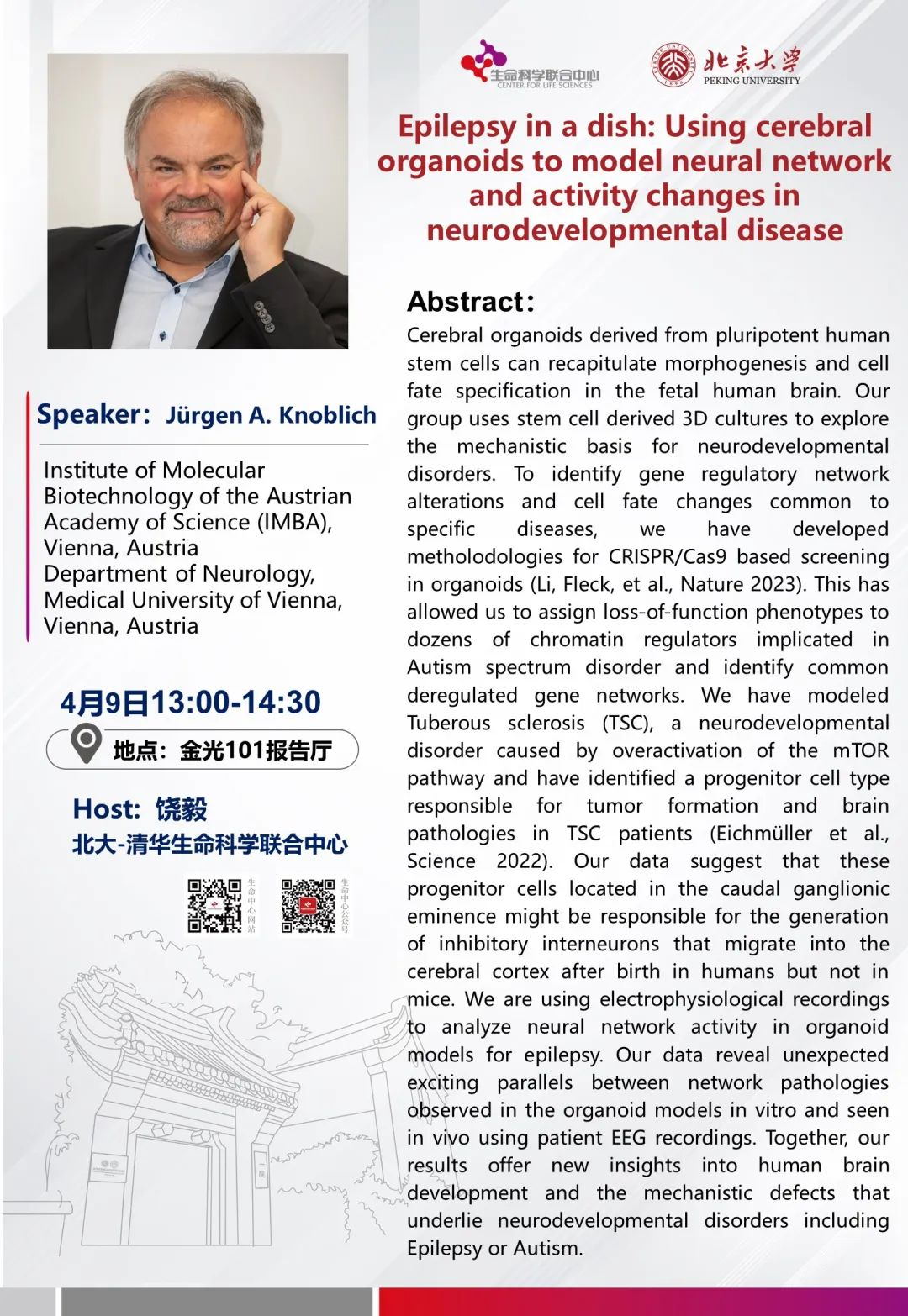
Speaker: Jürgen A. Knoblich, Institute of Molecular, Biotechnology of the Austrian, Academy of Science (IMBA),Vienna, Austria, Department of Neurology, Medical University of Vienna, Vienna, Austria
Time: 13:00-14:30 p.m., April 9, 2024, GMT+8
Venue: 101, Jingguang Life Science Building, PKU
Abstract:
Cerebral organoids derived from pluripotent human stem cells can recapitulate morphogenesis and cell fate specification in the fetal human brain. Our group uses stem cell derived 3D cultures to explore the mechanistic basis for neurodevelopmental disorders. To identify gene regulatory network alterations and cell fate changes common to specific diseases, we have developed metholodologies for CRISPR/Cas9 based screening in organoids (Li, Fleck, et al., Nature 2023). This has allowed us to assign loss-of-function phenotypes to dozens of chromatin regulators implicated in Autism spectrum disorder and identify common deregulated gene networks. We have modeled Tuberous sclerosis (TSC), a neurodevelopmental disorder caused by overactivation of the mTOR pathway and have identified a progenitor cell type responsible for tumor formation and brain pathologies in TSC patients (Eichmüller et al.,Science 2022).Our data suggest that these progenitor cells located in the caudal ganglionic eminence might be responsible for the generation of inhibitory interneurons that migrate into the cerebral cortex after birth in humans but not in mice. We are using electrophysiological recordings to analyze neural network activity in organoid models for epilepsy. Our data reveal unexpected exciting parallels between network pathologies observed in the organoid models in vitro and seen in vivo using patient EEG recordings. Together, our results offer new insights into human brain development and the mechanistic defects that underlie neurodevelopmental disorders including Epilepsy or Autism.
Source: Center for life sciences, PKU
